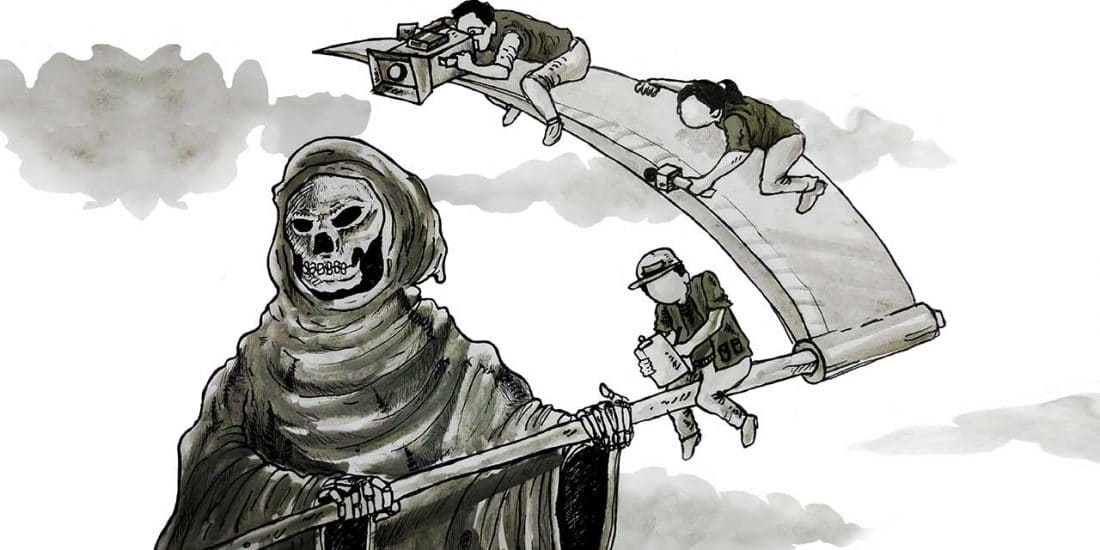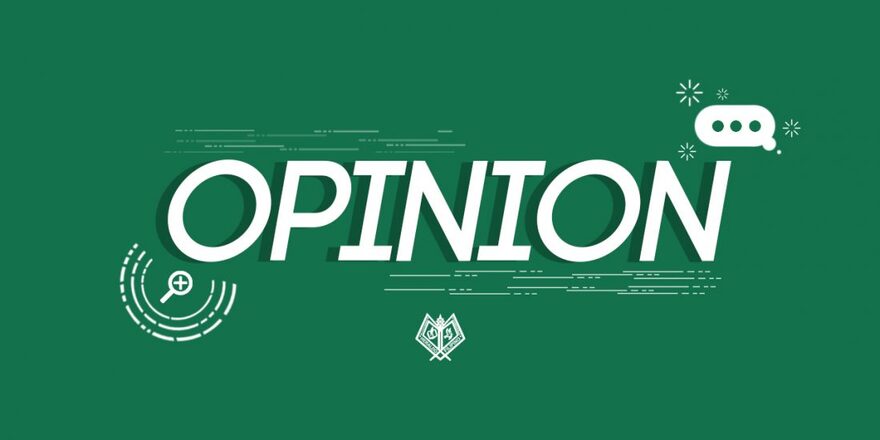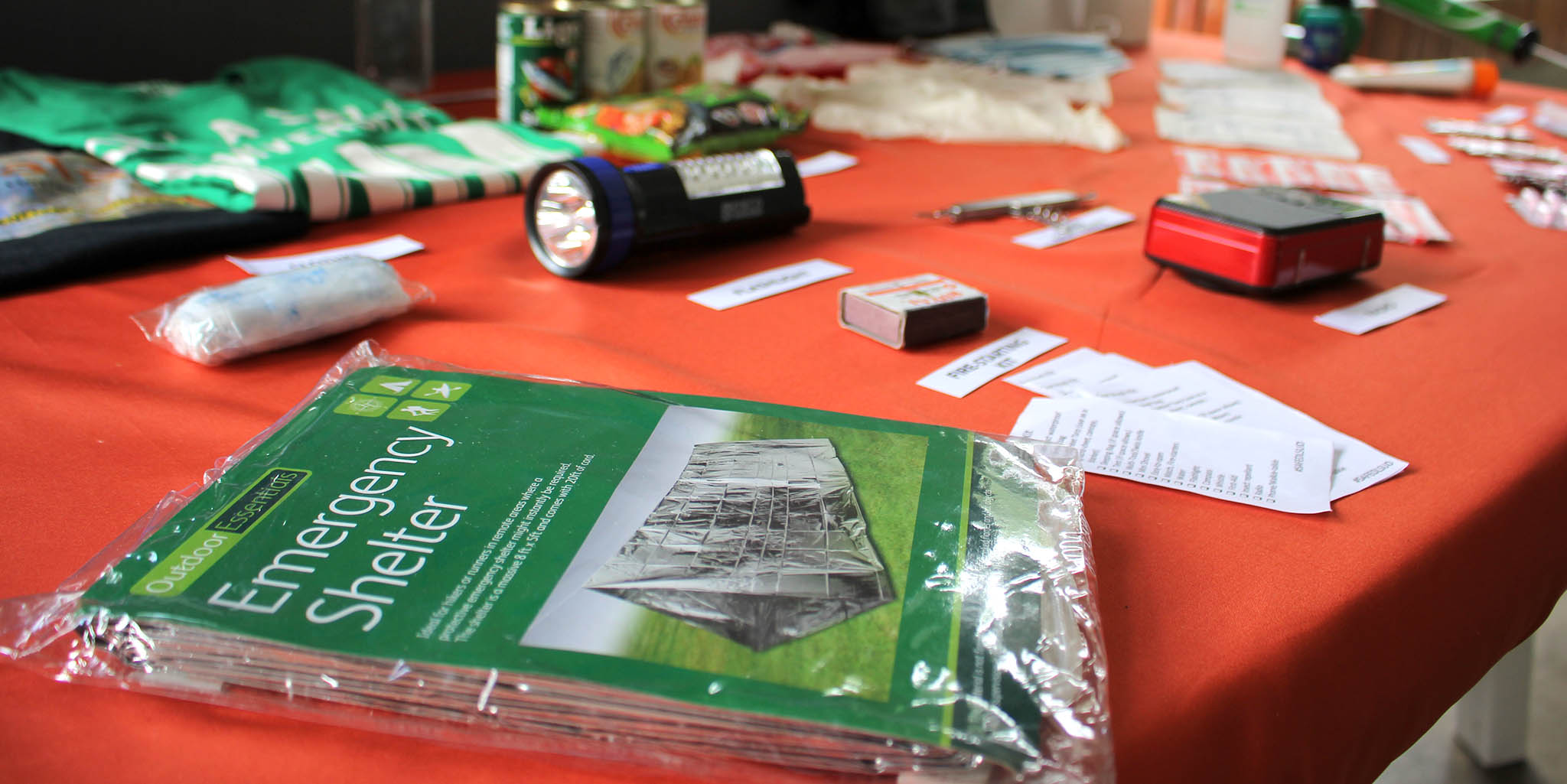In truth we trust
We should know by now to expect the worst from Donald Trump. When we thought he couldn’t get any more juvenile, he tweets. This time, his latest Twitter fiasco was an edited video of his guesting on World Wrestling Entertainment (WWE) but with CNN’s logo superimposed onto the face that Trump was pummeling, with the hashtag #FraudNewsCNN. Sure, it might seem amusing to a common bystander, but I still can’t shake the feeling that there’s something very wrong about it—something that left a bad taste in my mouth. Like battery acid. Underneath the surface of this seemingly innocuous short video is the message that violence against journalists isn’t all that bad. In Trump’s reality, it’s just a joke.
CNN’s response was to the point: “It is a sad day when the President of the United States encourages violence against reporters.” I never thought I’d see the day where I’d find something as bad as rape jokes—I was wrong. See, when we joke about harassment against women and violence against reporters, we normalize it. We create a culture wherein the worst is excusable. And that—pardon my language—is screwed up.
When we devalue journalism and journalists, it paves the way for people to forget the bedrock of democracy—the truth.
As someone who comes from a country listed down by the International Federation of Journalists as the second most dangerous place for journalists in the world, that tweet was an offense to all who have died doing their job. In 2009, the Maguindanao Massacre happened. We, Filipinos, need no further elaboration to recall the horror when at least 34 journalists were murdered in what is still considered the single deadliest attack on journalists in history. And there’s nothing funny about that.
When we devalue journalism and journalists, it paves the way for people to forget the bedrock of democracy—the truth. That’s how fake news and post-truth politics take the reigns over society for chaos to ensue. Case in point, when Justice Secretary Vitaliano Aguirre II wrongly accused senators not aligned with Duterte of being the masterminds behind the Marawi siege. He was dead wrong. What’s worse than the accusations is that he, a public servant in the one of the highest positions in the country, fell hook line and sinker for something a college student would be able to point out as fake news in his sleep.
At the root of all this mess is the conflict that journalism gets a lot of hate for good reason. It’s actually quite simple: some people (mainly politicians) just don’t like the truth—the very truth that journalists fight for. And this comes hand in hand with devaluing truth and journalism. There’s a reason why they call the media the fifth estate. Journalism, while objective in practice, is the avenue to take a stand for what is just and fair. Like truth, some people don’t like that.
Journalism, while objective in practice, is the avenue to take a stand for what is just and fair. Like truth, some people don’t like that.
Call me crazy, but I wouldn’t mind being a journalist in a time when journalism is under attack. When institutions try to rid the people’s trust in the media, we retreat from the truth—the very thing we must trust. Now, partner that with the fact that trust in the press is at an all-time low, misinformation is the norm, and news is often censored or silenced. That’s when we begin to realize how much we need to keep fighting the good fight.
Perhaps all of these attacks stem from the knowledge that journalists have power—words have power. They can kill hope, but they can also feed hope. Suffice to say, it’s this very hope that unnerves populists who rely on the people’s anger and loss of reality.
. . .in truth we trust.
But when we critic tweets that encourage violence against the press, file complaints against government officials who spread fake news, we are closer to reestablishing a world where the truth is of primary—not of secondary—importance. This’ll take us a step towards ensuring that the people we serve make informed decisions if we never tire to contest the toxic discourse and challenge the people toward critical thinking.
Because when all else fails, in truth we trust.





